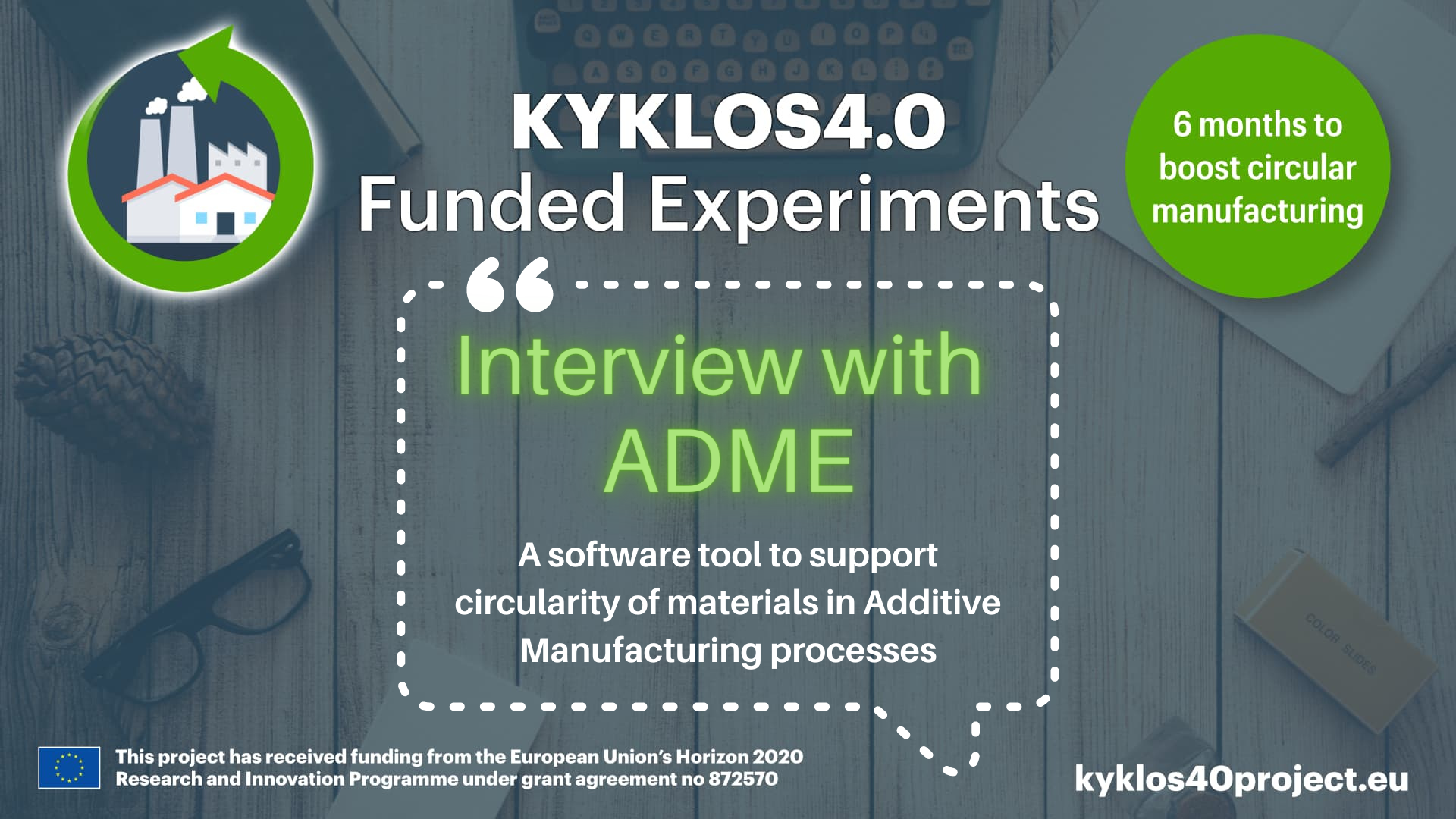
10 Mar Interview with the ADME experiment
The KYKLOS4.0 Open Call #1 is funding seven experiments that are developing technological solutions of value for the manufacturing domain.
The project will be releasing a series of interviews over the course of the coming weeks with the objective of promoting the work being implemented in these experiments and allowing our readers to understand potential uptake of the solutions being developed by them.
This is the first of seven interviews with the experiments funded under the open call. This first interview is with the ADME experiment.
* * * * *
Explain your project in one sentence (highlighting also the final product/ solution).
ADME aims to develop a knowledge-based platform to support the circularity of materials in Additive Manufacturing processes.
How is KYKLOS4.0 delivering value to your project?
KYKLOS4.0 is providing us with access to its tools. One of the most important enablers is the Advanced Additive Manufacturing enabler. It is of great value and importance, as it supports the generated database created by the ADME project for the developed DSS. The required information of the database has been received and implemented. This support from KYKLOS4.0 is highly appreciated by the ADME project.
How is your solution contributing to circular manufacturing?
The developed solution will allow companies to identify the materials that can be re-used to produce new parts, thus increasing circular manufacturing. The developed software tool will include process parameters, properties, characteristics, etc. However, the most innovative aspect, and the one that will have a greater contribution to circular manufacturing is the possibility of using the tool to access and evaluate a specific polymer recyclability. Through the use of Additive Manufacturing, it will thus allow to originate new parts and products. This will likely have a great impact and contribute to circular manufacturing.
How will your solution be replicated and used in other manufacturing environments?
The developed solution can be used across a range of manufacturing environments. Mainly because, by being online, it will allow companies to develop their own knowledge database and to identify which materials can be re-used, thus supporting circular manufacturing.
The database of the ADME project could be modified and adapted to be used by other manufacturing environments. The developed DSS could be easily modified to be implemented for these manufacturing environments. One of the main advantages of the innovative DSS in the ADME project is the high security to access and use it.
What advice would you give to companies wishing to make their manufacturing processes more circular?
First of all, exhaustive study should be realized by these companies, to classify the possibility of recycling the product. They should clarify which materials could be recycled and which materials cannot. In the first group, they should investigate all the means to recycle them. Otherwise, they should consult experts in this field.
Secondly, concerning the materials that could not be recycled, they should rethink their future use. They could be substituted by other materials, or maybe they could investigate new materials.
* * * * *
About the ADME project
The ADME project – Additive manufacturing knowledge management – is run by two partners: SMASP REDES PROFESIONALES S.L., from Spain, acting as the coordinator, and Favoritanswer Lda., from Portugal.
Summary: The aim of ADME project is to address the development of decision-making support tool based not only on the information provided by the material suppliers but also based on inputs and know-how gained by manufacturing with these materials.

